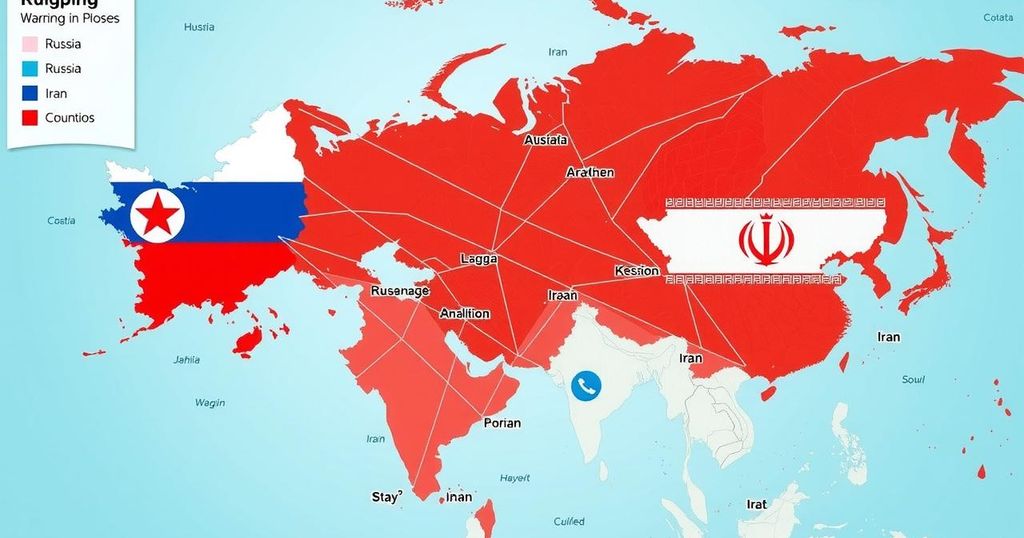U.S. Government Issues “Do Not Travel” Advisory for 20 Countries

The U.S. government has issued a Level 4 “Do Not Travel” advisory for 20 countries due to severe safety risks, highlighting armed conflicts, political instability, and terrorism. The advisory notably affects international tourism, prompting travelers to seek safer alternatives and impacting the travel industry’s operational strategies. Adequate research and planning are recommended for travelers to ensure safety while navigating uncertain global conditions.
In light of increasing global instability, the United States Government has issued a comprehensive “Do Not Travel” advisory for twenty countries, categorizing them as Level 4—indicating the highest risks associated with travel to these regions. The countries listed include Russia, North Korea, Iran, Iraq, Ukraine, Afghanistan, Belarus, Syria, Lebanon, Libya, Somalia, Sudan, Venezuela, and Yemen. This precaution highlights significant threats such as armed conflicts, political instability, terrorism, and severe civil unrest, urging American citizens to prioritize their safety when considering international travel in these uncertain times.
This advisory impacts international tourism and the travel industry considerably, as countries heavily dependent on tourism, like Venezuela and Lebanon, may face exacerbated economic challenges due to a decline in international visitors. Furthermore, travelers may pivot their itineraries towards safer locations, thereby influencing airlines, hospitality services, and tour operators in high-risk areas. Insurance providers may also adjust their policies, likely raising premiums or excluding coverage for the affected countries, while airlines may suspend or reroute their flights, affecting global connectivity.
The State Department’s advisory serves as a crucial reminder for travelers to conduct thorough research prior to engaging in travel activities. Key recommendations include consulting updated Travel Advisories, ensuring adequate insurance coverage, adhering to government warnings, and formulating contingency plans. To navigate this complex landscape, travel companies and tourism boards must adapt by promoting secure destinations, offering flexible booking policies, leveraging technology for real-time information updates, and providing resources on emergency preparedness.
The issuance of the “Do Not Travel” advisory reflects pervasive global challenges such as geopolitical tensions and public health crises. As travel resumes in the post-pandemic landscape, enhancing safety protocols and rebuilding trust will be pivotal for the travel industry. Countries and relevant industries must collaborate to foster a safer travel environment, which could involve implementing standardized safety certifications and establishing multilateral agreements.
In summary, the recent U.S. “Do Not Travel” warning underscores the necessity for travelers to prioritize their safety and remain informed about potential risks while navigating international travel. Additionally, it emphasizes the importance of resilience and adaptability within the travel industry to effectively address these evolving challenges while ensuring the safety of their customers.
The United States government’s recent advisory stems from a broader context of heightened geopolitical tensions and increasing national and international safety concerns. The ongoing conflicts in countries such as Ukraine, Afghanistan, and Yemen, along with political instability in Belarus and Venezuela, have created precarious environments for international travelers. This advisory not only aims to protect U.S. citizens but also reflects the interconnectedness of global travel and its susceptibility to regional conflicts and crises.
The issuance of the “Do Not Travel” advisory for 20 countries serves as an essential reminder of the complexities and risks faced by international travelers in an increasingly unstable world. It highlights the need for travelers to prioritize safety and to remain vigilant while also emphasizing the travel industry’s responsibility to adapt to these challenges. The collaboration between governments, travel companies, and international organizations will be crucial in promoting a safer travel landscape moving forward.
Original Source: www.travelandtourworld.com








